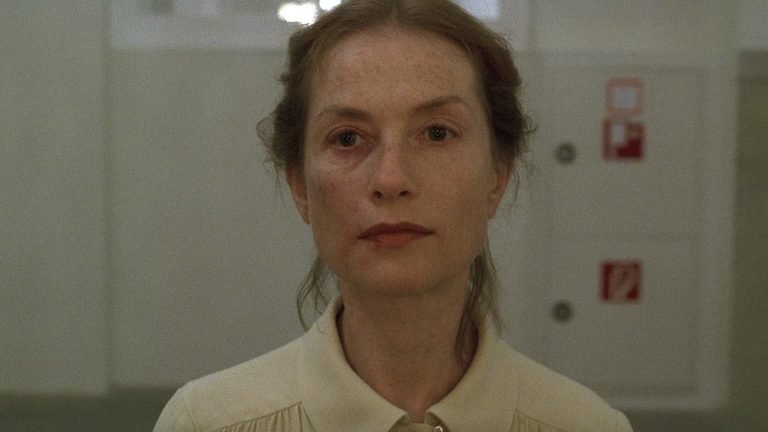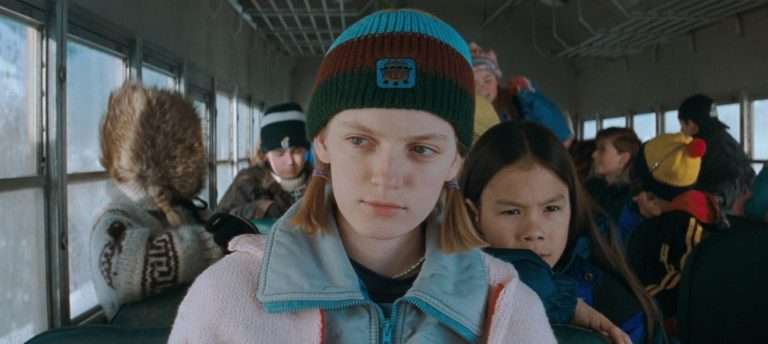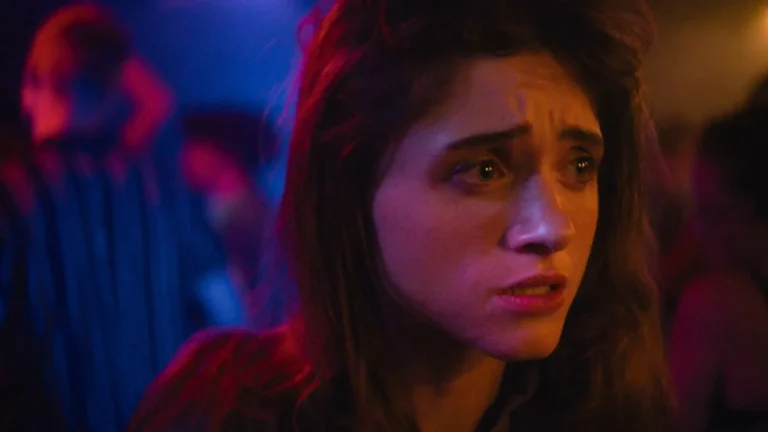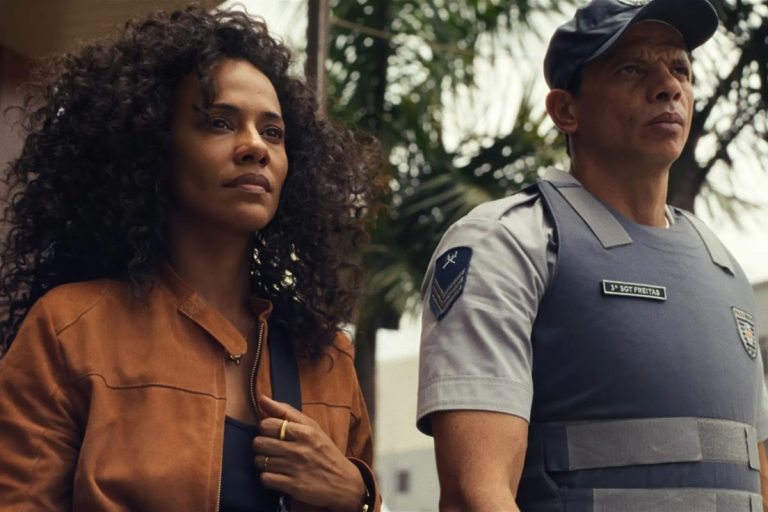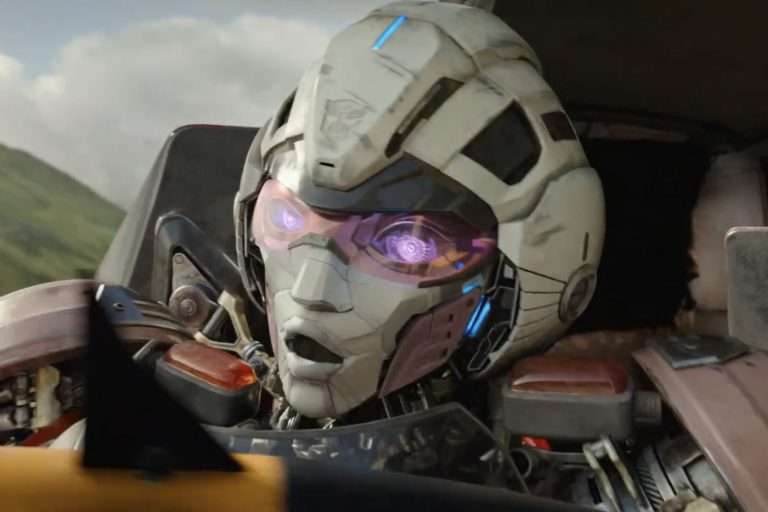With three timelines, Monk warriors, Robots hunting Alien species that can control human hosts, and a gun-wielding outlaw in Joseon-era Korea, there’s no doubt that Choi Dong-hoon’s blockbuster, “Alienoid” (2022) is an ambitious film. Ambition is the key that drives innovative big pictures like “Alienoid,” marrying elements of classic Korean fantasy cinema with Hollywood-style science fiction narratives. Yet ambition can also run wild, producing an indulgent and confusing mess. With “Alienoid,” Choi Dong-hoon comes close to the former and delivers on the latter. The film opens with a Kim Tae-ri narration, setting up the world of the film that gets increasingly complex as the story unfolds.
A race of cyborgs from a distant planet is tasked with capturing a species of dangerous aliens and imprisoning them in human hosts across time. When these aliens manage to escape their host bodies, two humanoid robots, Guard (Kim Woo-bin) and Thunder (Kim Dae-myung), are sent to retrieve them from the timeline. Guard is a patrolling robot programmed to apprehend and extract the aliens. Thunder is an assistant robot that manages alien prisoners, and it has the ability to take on any human form, including that of the Guard. To travel in time, they use a Divine Blade, which becomes the narrative’s McGuffin.
When Guard and Thunder travel to 1380 AD Korea, they inadvertently kill the human host of an alien that goes berserk. Despite its programming and protests from a cold Guard, Thunder decides to take the human’s infant child along with them to their present in 2012 AD. The world-building of the film is like a tangled web. The robots are responsible for the imprisonment of aliens in host bodies but also extract them to imprison them elsewhere once the aliens escape their human hosts. It’s an indirect route to the film’s conflict while adding unnecessary complications in a fairly predictable arc. It is never made clear as to why the robots need to imprison the aliens in humans in the first place.
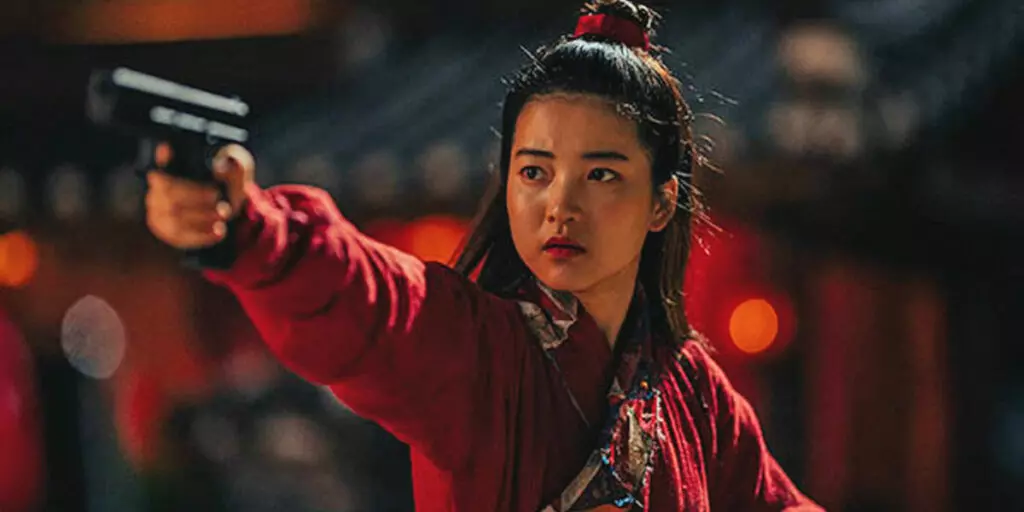
From the onset, the audience knows that the young child Yi-an (Choi Yu-ri) will melt their hearts, especially Guard, whom she considers her father. It’s a typical narrative beat played across the history of genre cinema. While in itself, that isn’t an issue, the screenplay is so stretched across multiple plot points that the arcs of many characters feel rushed and unearned. For a 140-minute movie, “Alienoid” never takes a pause and lets its characters breathe. The emotional resonance it tries to deliver is half-hearted and sacrificed to its comical element as well as action set pieces. Like most modern blockbusters, the film is plagued by the same struggle of putting its sequences above its characters therefore producing a fun but ultimately empty experience.
Guard and Thunder fight to prevent an alien invasion in 2012 AD and protect the dagger, which holds the key to their revival. Meanwhile, major portions take place in 1391 AD; the Divine Blade is again a key piece of conflict between the alien race as well as Taoist monks with magical powers. The central figures in this arc are Mureuk (Ryu Jun-yeol), a cocky but rookie warrior monk, and a mysterious woman (Kim Tae-ri) with a gun from the future.
The issues that plague the film occur in this timeline, too. There are too many moving pieces, with the screenplay unfolding like a mystery box. Oddly, if one has seen enough of these types of genre films or a blend of them, the plot beats and twist reveals are fairly predictable. Once Kim Tae-ri’s weapon is revealed in a comedy of errors wedding sequence, the viewer can easily guess she is an older Yi-an. How did Yi-an end up in the past timeline is the question that remains to be answered.
As for Guard and Thunder, their cliché arcs will undoubtedly end with their sacrifice to protect Yi-an. The aliens also follow them across time to obtain the Divine Blade, and both parties struggle for a decade to get the McGuffin. In addition to this, the aliens also lose their chief alien, The Controller. The Controller arrived in the past with a wounded host body; he must quickly enter a new one at the risk of losing his memories. This extra detail further tangles the plot, yet the predictability of the scenario remains when the final twist is revealed.
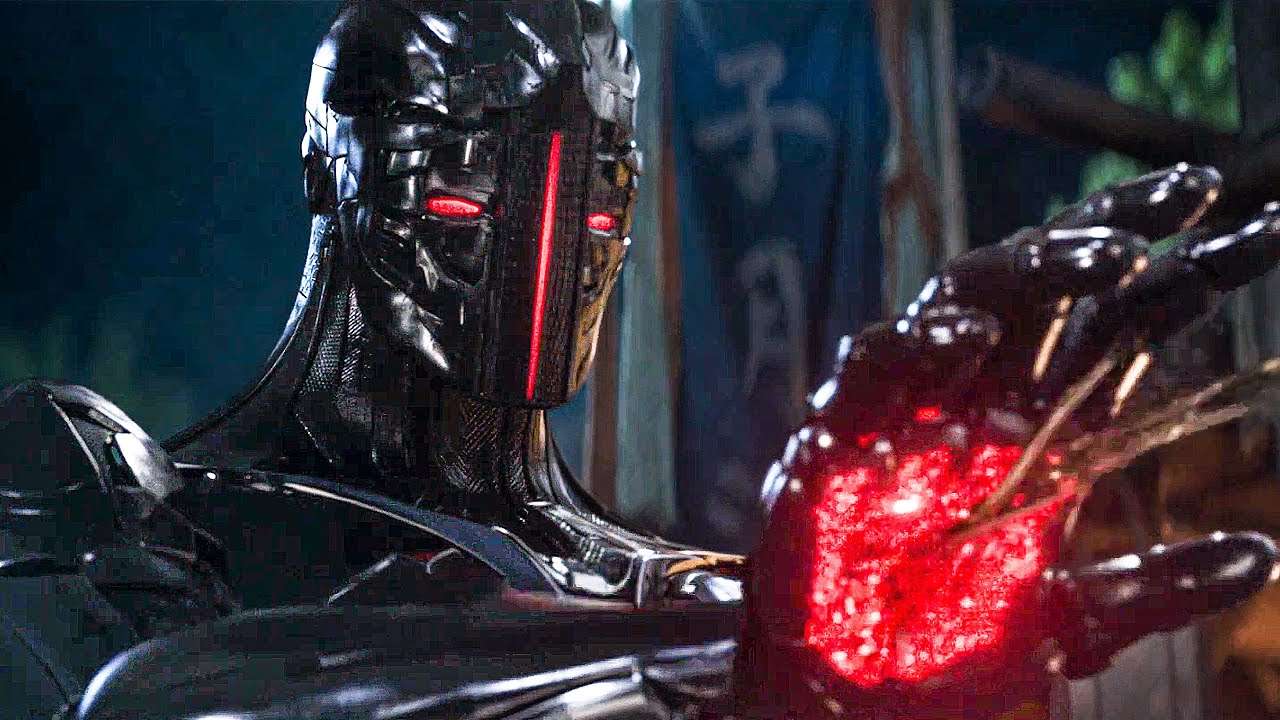
Despite facing Taoists who claim to know him, Mureuk is plagued by memory loss and nightmares of his past. It is clear that Mureuk is set up to be the host body of the Controller. The film shows him transforming from a money-hungry monk to a hero hell-bent on protecting Yi-an. Even then, his hero’s journey arc feels rushed, especially once he learns how to master his weapons and magic. None of that helps the eventual culmination of the film when the revelation of The Controller within him comes into play. In that sense, the way the director plays with time travel and the linear structure of the timelines is fascinating on paper but fails to translate on screen. The time-hopping editing and muddled action choreography add to this confusion.
If there is any fun to be had with the film, it is thanks to the cast that elevates the material. When Ryu Jun-yeol takes center stage in the Jeseon timeline, the film is injected with energy. Even in the increasingly messy action sequences, Jun-yeol portrays Mureuk with a slapstick style reminiscent of Jackie Chan. Kim Tae-ri plays with the deceptive and smart layers of an adult Yi-an and, alongside Choi Yu-ri, gives the film its beating heart. Kim Woo-bin has the opportunity to flex beyond the cool swagger of Guard with the actions of Thunder and have some moments of levity.
The rest of the cast is equally funny especially the pairing of Yum Jung-ah and Joo Woo-jin as Mage’s hired to find the Divine Blade. Of note is their standout scene when they are betrayed by the aliens and paralyzed by poison. The two actors deliver a hilarious ride with their restricted body language and expressive close-ups.
Visual effects do the heavy lifting for a film of its nature. The stylish and clean aesthetic adds to the tension of the set pieces, especially during a horrific chase in the present-day timeline. The film’s relentless pace is all in service of setting up a sequel while failing to make sense of the madness that unfolds within the first film itself. Choi Dong-hoon’s unstable world-building and plotting in favor of a sequel cause a mess with his ambitions. It is unfortunate because ambition is so severely lacking in the safe filmmaking of modern mainstream cinema.
